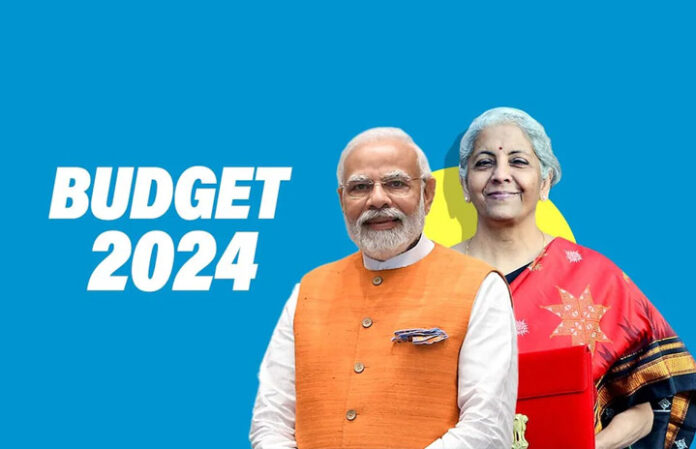On 23rd July, Finance Minister Nirmala Sitharaman unveiled the much-anticipated Budget 2024, a fiscal blueprint that has sparked widespread debate and controversy across India. The budget, which has drawn criticism from various quarters, marks a significant shift in the government’s fiscal policies, particularly in the areas of taxation and investment. Even staunch supporters of the ruling administration, including prominent figures within the Modi government’s base, have expressed their displeasure.
Public Discontent and Memes: A Nation Reacts
The public reaction to Budget 2024 has been notably negative, with even ardent supporters of Prime Minister Narendra Modi voicing dissatisfaction. This discontent is reflected in a surge of online memes and social media commentary. One viral tweet from comedian Abhijit Ganguly encapsulates the sentiment: “If I earn money, Nirmala taxes it. If I spend money, then also Nirmala taxes it. If I don’t earn or spend and my money is just lying in investment, Nirmala taxes that too!” Ganguly’s tweet humorously highlights the pervasive nature of the new tax policies, resonating with many who feel overburdened.
A particularly popular meme references a flowchart illustrating the various taxes imposed on income, investments, and expenditures. According to the chart, individuals are taxed at 30% on their salaries, 20% on short-term investment returns, and up to 28% on luxury goods under the Goods and Services Tax (GST) regime. This depiction has fueled public frustration, with many feeling that the government is excessively taxing citizens at every possible juncture.
Key Budget Changes: A Closer Look
Capital Gains Tax
One of the most controversial aspects of the budget is the increase in Capital Gains Tax, which affects individuals who profit from the sale of assets like real estate, stocks, or mutual funds. The Short-Term Capital Gains (STCG) tax rate has been increased from 15% to 20%, while the Long-Term Capital Gains (LTCG) tax rate has risen from 10% to 12.5%. Although the government has also raised the exemption limit from ₹100,000 to ₹125,000, investors are concerned about the impact on their returns.
Securities Transaction Tax
The budget also increased the Securities Transaction Tax (STT) on Futures and Options trading. The STT on futures has been raised from 0.0125% to 0.02%, and on options, it has increased from 0.0625% to 0.1%. This move has drawn criticism, particularly from retail investors and traders, who view it as an additional burden.
Angel Tax and Corporate Taxation
In a move welcomed by the startup community, the budget proposes the abolition of the Angel Tax, which was levied on investments received by startups exceeding their fair market value. However, broader concerns remain about the government’s tax policy, particularly the relatively low corporate tax rates compared to the high rates imposed on individuals.
Economic Survey Insights and Government Justification
The government’s rationale for these tax increases appears to be grounded in concerns about economic stability. The Economic Survey of 2023-2024, presented a day before the budget, highlighted the potential instability arising from an overheated stock market. The report noted that excessively high equity market valuations could lead to market instability, suggesting that the tax increases aim to temper speculative activities.
The survey also addressed the unemployment crisis, with data indicating a 44.49% unemployment rate among the 20-24 age group. The government acknowledges that half of the graduates in India are unemployable due to insufficient skills, underscoring the need for job creation and skill development initiatives.
Real Estate and the Impact of Policy Changes
The budget’s changes to the LTCG tax on non-financial assets, such as real estate, have also sparked debate. While the nominal LTCG tax rate on property sales has been reduced from 20% to 12.5%, the removal of indexation benefits means that gains will no longer be adjusted for inflation, potentially increasing the tax burden on property sellers. This policy change appears aimed at curbing speculative investment in real estate and preventing property bubbles, but it has raised concerns about its impact on genuine homebuyers and investors.
Income Tax and Middle-Class Concerns
The budget has introduced modest changes to the income tax structure, including an increase in the Standard Deduction from ₹50,000 to ₹75,000 and adjustments to the tax slabs. However, these changes offer limited relief to the middle class. Critics argue that the government should focus more on taxing the wealthiest individuals, rather than burdening the middle class and small businesses.
Regional Allocations and Political Implications
The budget has allocated significant funds to specific states, particularly Andhra Pradesh and Bihar, which have received ₹150 billion and ₹600 billion respectively for infrastructure and development projects. This allocation has been criticized as politically motivated, with opposition leaders dubbing it a “Seat Conservation Budget” aimed at securing electoral support.
A Polarizing Budget
Budget 2024 has undoubtedly been a polarizing fiscal plan, eliciting strong reactions from various segments of society. While the government argues that the new tax policies are necessary for economic stability and equitable growth, many feel that the burden disproportionately falls on the middle class and small investors. The true impact of these policies will unfold over time, as the nation grapples with the challenges and opportunities presented by this budget.
As India navigates these fiscal changes, the debate over taxation, economic equity, and government policy continues to intensify, reflecting broader concerns about income inequality and economic justice in the country.




